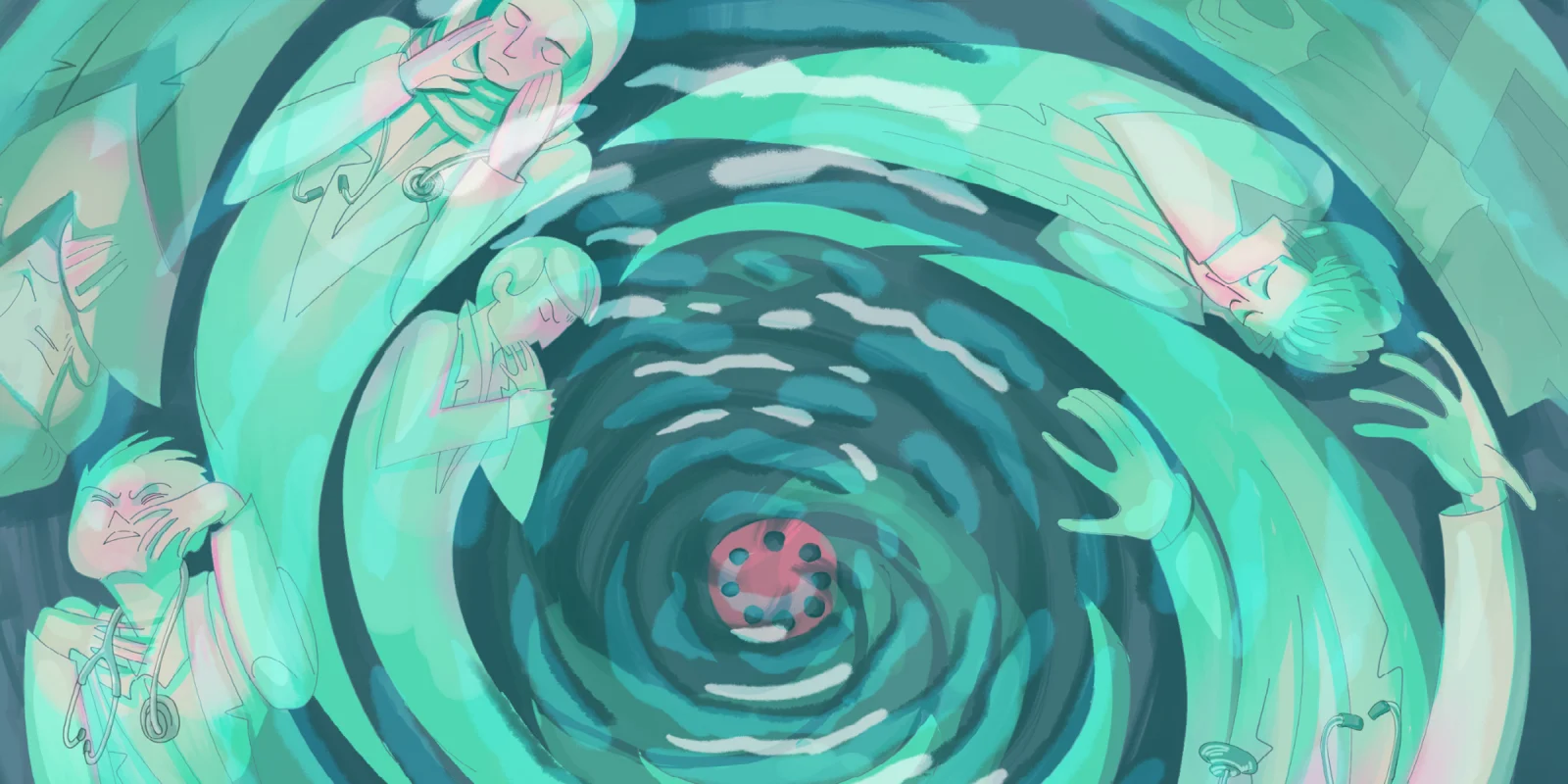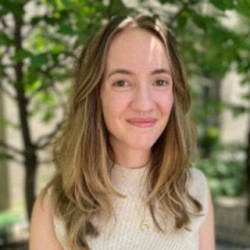I’m in the trauma bay once again — the room is its familiar organized chaos. The ER residents, my friends, are prepping the airway equipment in anticipation of an impending intubation. I realize my perspective of the room looks different than usual; I’m not looking across the room but up at the action around me. I realize all at once that I’m laying on the trauma bay stretcher. I’m the patient who is about to be intubated.
“Ready to push meds?” A sound of agreement follows, and the sedative and paralytic are delivered through my IV. The room narrows to just the view above me, where I see my friends preparing to intubate me.
“Am I going to be OK?” I ask them. I don’t know if there’s an answer. I wake up in my apartment with my heart racing — a dream.
I didn't have these kinds of dreams before residency. Now every few months, I’ll wake up suddenly from a horrible crossover nightmare between my life and my work, usually some sort of awful situation where I can’t save my patients or myself. Another time, I woke up sweating after realizing that the patient I had been rounding on in the medical ICU in my dream, an older man I had placed a central line in, was my grandfather.
I’ve noticed that these dreams happen more often after stressful ER shifts or while I’m in the medical ICU — longer hours, more emotional lability, physical exhaustion. We already know about the devastating connection between physicians and mental health: As early as 1858, physicians reported they had a higher suicide rate than the general population — and this gap has persisted.
I’ve been thinking a lot recently about the health risks and sacrifices that we take on as health care workers. Are we really aware of these factors before pursuing careers in medicine? I know I wasn’t.
I definitely wasn’t thinking about the health effects of rotating night shift work when I was a pre-med college student at 18 years old. Extremely ironic, since I’m now an emergency physician writing this at 2 a.m., unable to sleep after two weeks of ICU nights. Research has shown that night shift work may increase the risk of chronic disease, mental disorders, and cognitive impairment, and may decrease the odds of healthy aging. Constant changes in circadian rhythm can lead to chronic sleep deprivation, poor-quality sleep, and sleep disorders. Not to mention that night shifts and working long hours have been related to miscarriages, preeclampsia, and preterm birth. While some emergency medicine residency programs have implemented flexible schedule policies for pregnant residents or residents who are new parents, this is definitely not the norm.
I also wasn’t thinking about how some residency programs interpret the ACGME rules in ways that worsen working hours for residents and fellows. How the “one day in seven free” rule becomes averaged over multiple weeks, so residents end up working an inhumane 12-plus hour days for 14 days straight before taking two days off. Or how some programs can get around duty hour limits by not counting home calls toward the weekly limit — since only time spent physically in the hospital is counted. As a result, some residents and fellows can be called multiple times throughout the night for consults, spending hours and potentially the whole night awake, and then have to work the next day.
Only this year, on July 1, 2022, did the ACGME begin to implement a resident parental leave policy. The policy, which calls for six weeks of paid parental leave, will not actually be enforced until July 1, 2023. And while the requirement does not mandate that our vacation (four weeks a year) be used toward the six weeks, some programs this year have done exactly that.
I’m jealous of my non-medical friends who aren’t constantly in fear of being in danger at work. I’ve seen my friends and colleagues punched, spit on, screamed at, or sexually harassed. I’ve had patients lunge at me after receiving less-than-desirable news. This week, a patient returned to the waiting room with a loaded gun after being escorted out by security — no metal detectors to deter them. Once, when explaining to a patient that their symptoms were concerning for a GI bleed, and that I needed to do a rectal exam, he said, “What, you’re not going to kiss me first?” An estimated 20%-30% of U.S. physicians reported experiencing racially or ethnically offensive remarks, sexist remarks, or unwanted sexual advances by patients, families, or visitors in their place of work. And of course, these physicians were in turn more likely to have symptoms of burnout. In addition, 37% of North American health care workers experienced physical violence within the previous year, with a large proportion occurring within the ED. Do we all not deserve to feel safe at work?
Worsening burnout, physician and nursing turnovers, staffing shortages, surges of other viruses such as influenza and respiratory syncytial virus, anti-science beliefs, politicization of vaccines and science, long working hours, risks to our mental and physical health, an overload of bureaucratic tasks, barriers to family planning and parental leave, verbal and sexual harassment — the list goes on and on and the waves aren’t letting up.
With these factors in play, surely it is not surprising that in 2021, nearly 63% of U.S. physicians have at least one symptom of burnout, up from 38% in 2020. The specialty with the highest rate of burnout? Emergency medicine at 60%, closely followed by critical care, ob/gyn, and infectious disease. Being an emergency medicine resident has absolutely changed me — and sometimes, I fear, not for the better.
Is being a physician an honor and privilege? Absolutely. Is medicine a calling? Maybe; for some physicians it absolutely is. But by emphasizing medicine as a calling, we make it harder to realistically identify or address these very real risks in our field. After all, if medicine is truly a calling, we would be willing to sacrifice anything and all parts of ourselves for the greater good. At the end of the day, being a physician is a job — one that might also end up being a calling — but a job nonetheless. A job that must make continued steps to prioritize our health and to heal our profession. We can only carry so much weight — and I don’t want to keep having nightmares about writing endless progress notes on my patients who all look like my loved ones.
How have your experiences in medicine affected your health? Share your thoughts in the comment section.
Dr. Halloran is an emergency medicine physician currently completing residency in Chicago. She works and writes at the intersection of health policy, inequality, and education, and her research and writing has been featured by the American College of Emergency Physicians and by Slate. She can be found on Twitter at @Diana_Halloran. Dr. Halloran is a 2022-2023 Doximity Op-Med Fellow.
Illustration by April Brust






